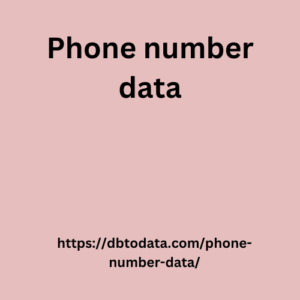Understanding US Mobile Numbers
The Structure of US Mobile Numbers
US mobile numbers Belgium Phone Number Library follow a specific format that consists of 10 digits, divided into three sections: the area code, the prefix, and the line number.
- Area code: This three-digit Belgium Phone Number Library code identifies the geographic region where the number is located. For example, 212 is the area code for Manhattan, New York City.
- Prefix: This three-digit code, following the area code, further narrows down the location within the area.
as opposed to an international number.
- Line number: The last 100% Accurate Belgium Phone Number Data four digits of the number uniquely identify a specific phone line within the area code and prefix
The “1” prefix is a standard part of US mobile numbers. It indicates that the number is a domestic US number,
Mobile vs. Landline Numbers
While the basic structure is similar, there are some differences between mobile and landline numbers.
- Number portability: Mobile numbers are more portable than landline numbers, meaning they can be transferred to a different carrier without changing the number.
- Geographic association:
Special Number Formats
There are a few special number formats that are used for specific purposes:
- Toll-free numbers: These What they need and what interests them numbers begin with and do not require the caller to pay for the call.
- Premium rate numbers: These numbers begin with and require the caller to pay a premium rate for the call.
- Short codes: These are five-digit numbers that are used for text messaging, voting, and other services.
Conclusion
Understanding the structure of US mobile numbers can be helpful for a variety of reasons, from identifying the geographic location of a number to recognizing special number formats. By knowing the components of a US mobile number, you can navigate the US phone system with greater ease.

